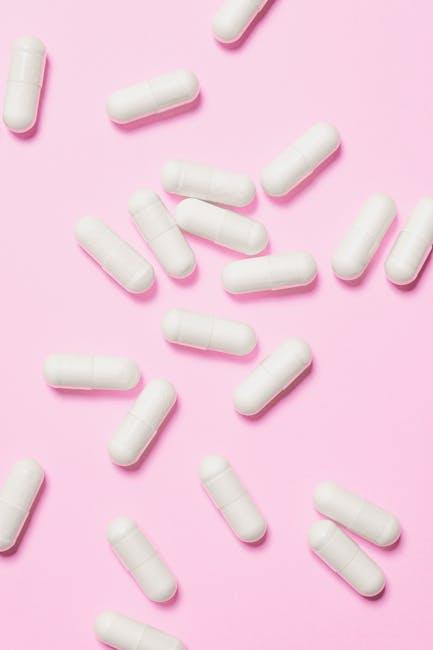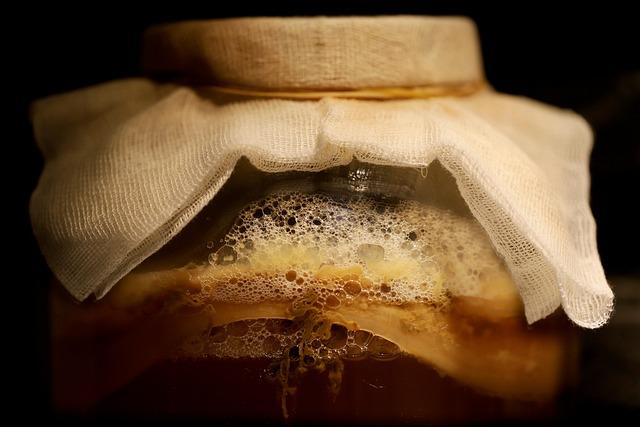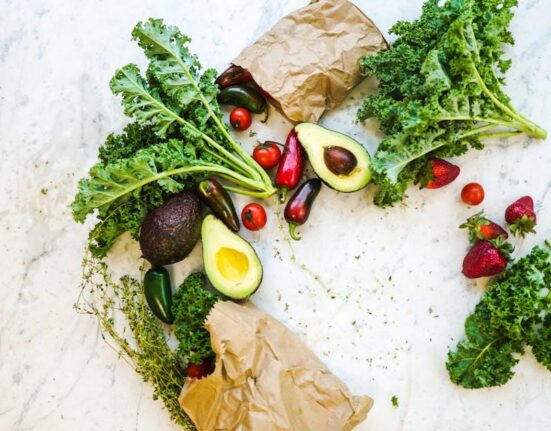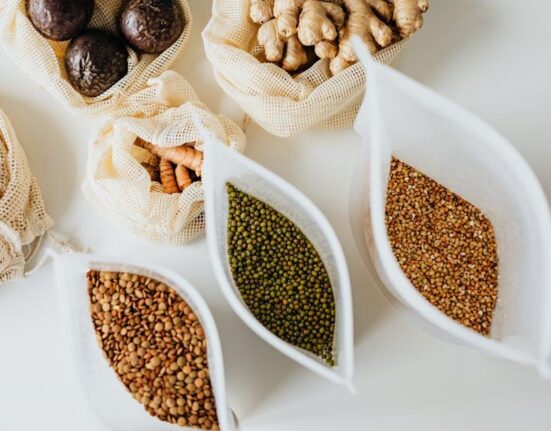In the intricate universe within our intestines, balance is both delicate and vital. As more people seek natural pathways to restore and nurture their digestive health, fermented supplements have emerged from ancient traditions into modern wellness routines. These living allies, rich in probiotics and nutrients, offer a promising avenue for gut healing and revitalization. This article delves into the best fermented supplements, exploring how they work, their unique benefits, and why they might be the key to unlocking a healthier, happier gut. Whether you’re a seasoned health enthusiast or just beginning your journey, understanding these fermented wonders could transform your approach to digestive well-being.
Table of Contents
- Exploring the Science Behind Fermented Supplements and Gut Health
- Key Benefits of Fermented Supplements for Digestive Wellness
- Top Fermented Ingredients to Look for in Gut Healing Supplements
- How to Choose Quality Fermented Supplements for Optimal Results
- Incorporating Fermented Supplements into Your Daily Gut Healing Routine
- Q&A
- Final Thoughts

Exploring the Science Behind Fermented Supplements and Gut Health
Fermentation is a natural process leveraged for centuries, transforming raw ingredients into potent sources of probiotics and bioactive compounds. This transformation not only preserves the nutrients but also enhances their bioavailability, making fermented supplements a powerhouse for gut healing. The beneficial bacteria produced during fermentation colonize the intestines, outcompeting harmful pathogens and reinforcing the gut barrier. Moreover, these microbes create short-chain fatty acids (SCFAs) that serve as fuel for intestinal cells and modulate inflammatory responses, crucial for maintaining a balanced microbial ecosystem and reducing gut permeability.
Scientific studies reveal that fermented supplements can stimulate enzymatic activity and boost the immune system, creating a synergistic effect in gut restoration. Key components commonly found in these supplements include:
- Lactobacillus species, which enhance digestion and nutrient absorption.
- Bifidobacterium strains, known for their anti-inflammatory properties.
- Prebiotic fibers slowly released during fermentation, feeding and sustaining healthy bacteria.
| Fermented Supplement | Primary Benefit | Gut Action |
|---|---|---|
| Kefir | Rich probiotic diversity | Balances microbiota |
| Kimchi | High in antioxidants | Supports inflammation reduction |
| Miso | Enzymatic activity | Enhances digestion |

Key Benefits of Fermented Supplements for Digestive Wellness
Fermented supplements work wonders by delivering a powerhouse of probiotics directly to your digestive system. These live bacteria and beneficial yeasts help balance the gut microbiome, promoting smoother digestion and enhanced nutrient absorption. Unlike traditional supplements, fermentation can increase the bioavailability of vitamins and minerals, making them easier for your body to utilize. Regular intake has been linked to reduced bloating, less gas, and improved bowel regularity, providing a gentle yet effective way to soothe digestive discomfort.
Beyond gut flora support, these supplements also act as natural immune boosters and inflammation fighters. The fermentation process breaks down complex compounds, yielding compounds that support the intestinal lining and overall gut integrity. Consider the following practical benefits:
- Enhanced enzyme activity to aid digestion of fats, proteins, and carbohydrates
- Reduction in harmful pathogens by competitive exclusion
- Support for mental wellness through the gut-brain axis
- Improved metabolism and energy levels
| Benefit | Impact |
|---|---|
| Probiotic Diversity | Strengthens gut ecosystem |
| Digestive Enzymes | Speeds nutrient breakdown |
| Anti-inflammatory Compounds | Calms gut irritation |

Top Fermented Ingredients to Look for in Gut Healing Supplements
When selecting gut healing supplements, certain fermented ingredients stand out for their potent benefits in restoring digestive health. Fermented turmeric is a powerhouse, enhancing bioavailability and combining anti-inflammatory properties with gut-soothing effects. Meanwhile, fermented ginger offers unique enzymatic activity that supports digestion and alleviates nausea, making it ideal for calming an irritated stomach. Additionally, fermented garlic promotes a balanced gut microbiome by naturally inhibiting harmful bacteria while encouraging the growth of beneficial strains.
Beyond these herbal frontrunners, fermented grains and legumes such as fermented brown rice and fermented chickpeas provide prebiotic fibers crucial for nurturing probiotic colonies. Here’s a quick overview of these top ingredients and their key benefits:
| Ingredient | Primary Benefit | Gut Impact |
|---|---|---|
| Fermented Turmeric | Enhanced curcumin absorption | Reduces inflammation, soothes lining |
| Fermented Ginger | Improved digestive enzymes | Calms nausea, promotes digestion |
| Fermented Garlic | Natural antibiotic effects | Balances gut microbiota |
| Fermented Brown Rice | Rich in prebiotic fiber | Feeds probiotics for sustained health |
| Fermented Chickpeas | High in resistant starch | Supports beneficial bacteria growth |

How to Choose Quality Fermented Supplements for Optimal Results
When selecting fermented supplements, it’s essential to look beyond marketing claims and focus on the strain diversity and potency. Not all fermented products are created equal; a quality supplement will contain a variety of well-documented probiotic strains that synergistically support gut health. Additionally, pay attention to the colony-forming units (CFUs)—the higher, the better, but only if the strains are viable at the time of consumption. Look for products with transparent labeling, including expiry dates and storage instructions, to ensure you’re getting live cultures that will thrive in your digestive system.
Another often overlooked aspect is the source of fermentation. Ideally, supplements fermented using traditional, natural processes yield richer bioactive compounds compared to synthetic methods. Check if the brand uses organic, non-GMO ingredients and avoids unnecessary fillers or preservatives, as these can interfere with the delicate balance of the gut microbiome. Below is a quick guide to evaluate key features in fermented supplements:
| Feature | What to Look For | Why It Matters |
|---|---|---|
| Strain Diversity | Multiple clinically studied strains | Broader benefits for gut flora |
| CFU Count | At least 10 billion per serving | Ensures effective colonization |
| Ingredient Quality | Organic, non-GMO sources | Reduces risk of toxins and allergens |
| Fermentation Process | Natural, traditional methods | Enhances bioavailability of nutrients |
| Transparency | Clear labeling and expiration | Confirms potency and safety |

Incorporating Fermented Supplements into Your Daily Gut Healing Routine
Integrating fermented supplements into your daily regimen can profoundly support gut health by enhancing digestion and fostering a balanced microbiome. Start by introducing small dosages, allowing your body to acclimate to the beneficial bacteria and enzymes. Consistency is key—taking your supplement at the same time daily, preferably with meals, maximizes absorption and effectiveness. Consider pairing them with prebiotic-rich foods like garlic, onions, and asparagus, which serve as fuel for the probiotics, amplifying their positive impact.
To simplify your gut healing journey, pay attention to variety and quality. Rotate among different fermented supplements such as kefir capsules, sauerkraut powders, or kombucha concentrates to expose your gut to diverse strains of bacteria. Below is an example schedule to dynamically incorporate these supplements without overwhelming your system:
| Day | Suggested Supplement | Meal Pairing |
|---|---|---|
| Monday | Kefir Capsule | Breakfast |
| Wednesday | Sauerkraut Powder | Lunch |
| Friday | Kombucha Concentrate | Dinner |
- Stay hydrated to help the beneficial bacteria thrive.
- Avoid high sugar intake which can disrupt gut flora balance.
- Listen to your body and adjust supplement types and amounts accordingly.
Q&A
Q&A: Best Fermented Supplements for Gut Healing
Q1: What are fermented supplements, and why are they beneficial for gut healing?
A1: Fermented supplements are products made by allowing beneficial bacteria, yeast, or fungi to naturally break down food ingredients. This process enhances the bioavailability of nutrients and introduces a rich variety of probiotics—live microorganisms that support gut health. These supplements can help restore balance to the gut microbiome, promote digestion, reduce inflammation, and improve overall gut lining integrity.
Q2: How do fermented supplements differ from traditional probiotics?
A2: While traditional probiotics often contain isolated strains of bacteria, fermented supplements provide a diverse community of microbes alongside a complex matrix of fermented nutrients, enzymes, and organic acids. This complexity can offer a broader spectrum of gut support by enhancing microbial diversity and synergistically aiding digestion.
Q3: Which fermented supplements are considered the best for gut healing?
A3: Some top contenders include:
- Kefir: A fermented milk beverage rich in diverse probiotic strains and bioactive peptides.
- Sauerkraut: Fermented cabbage packed with lactic acid bacteria and fiber for digestive health.
- Kimchi: A spicy Korean fermented vegetable dish loaded with probiotics and antioxidants.
- Miso: A fermented soybean paste delivering beneficial enzymes and gut-friendly microbes.
- Tempeh: A fermented soybean cake with probiotics and easily digestible proteins.
- Fermented cod liver oil: Combines omega-3 fats with fermentation’s gut-soothing benefits.
Q4: Can fermented supplements help with specific gut issues like IBS or leaky gut?
A4: Many people with IBS, leaky gut, or inflammatory bowel conditions find fermented supplements helpful due to their probiotic content and anti-inflammatory properties. They may help reduce symptoms like bloating and diarrhea by balancing gut bacteria and reinforcing the intestinal barrier. However, individual responses vary, so consulting a healthcare provider is advisable.
Q5: How should fermented supplements be incorporated into a gut-healing regimen?
A5: Start slowly to allow your gut to adjust—small daily servings can build tolerance. Pair supplements with a balanced diet rich in fiber and avoid highly processed foods to maximize benefits. Also, opt for raw, unpasteurized options when possible, as pasteurization can kill beneficial microbes.
Q6: Are there any precautions or side effects to be aware of?
A6: Some people may experience initial digestive upset (gas, bloating) as their microbiome shifts. Those with compromised immune systems or severe allergies should exercise caution. Additionally, fermented supplements high in histamines might not suit everyone.
Q7: Can fermented supplements replace other medical treatments for gut health?
A7: Fermented supplements are a supportive tool rather than a standalone cure. They can complement dietary changes, stress management, and prescribed medications but should not replace professional medical advice or treatment plans tailored to individual health conditions.
By nurturing your gut with nature’s microbial alchemy, fermented supplements can be a flavorful, effective way to support digestive resilience and overall wellness.
Final Thoughts
As we journey toward better gut health, fermented supplements stand out as nature’s humble allies—teeming with live cultures that nurture and restore balance from within. Whether you opt for tangy kimchi capsules, potent probiotic powders, or smooth fermented drinks, these supplements offer more than just digestion support—they invite a dialogue between your gut and overall well-being. Remember, the best choice is one that resonates with your unique body and lifestyle. So, nourish your gut thoughtfully, listen closely to its signals, and let fermentation’s ancient wisdom guide you toward a healthier, happier you.













Leave feedback about this